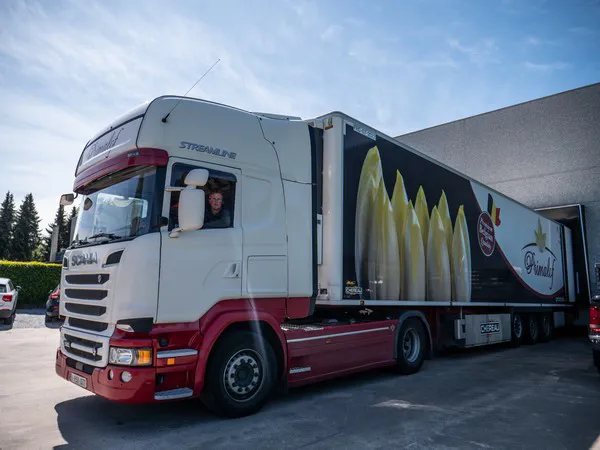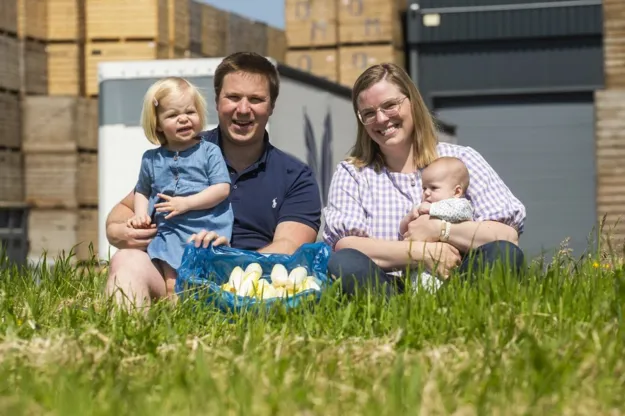Chicory will find its way into our salads during the summer months, yet Belgian chicory growers are a bit concerned. "Marketing is going well at the moment, but it has nevertheless been very difficult on the supply side. Also, in future, there will be more and more pressure on chicory cultivation," explains Charles Cattoir of Primalof.

"The goods are flowing smoothly at the moment. There was a big boom at the beginning of the year. This has levelled off a bit by now, but sales are holding up well," the entrepreneur continues. "However, I think this is largely due to the fact that, as mentioned at the beginning of the season, there is 30 per cent less volume across Europe. That may make things more complex in the next few months, because a lot has already been sold, and it will take some time for the new roots to arrive."
"In fact, everyone wanted to sow early, but that has not worked out well anywhere. There has only been full sowing in Belgium from mid-May, because conditions have been difficult. I think almost everyone has finished sowing, but it also means that we can only harvest the new roots in late October/early November. Add to that the fact that they then need another month in the cold, so we are facing some difficult months on the supply side. We will see where it goes."
Uncertain future
While chicory growers already faced sine challenges this season, Charles fears these will carry over into the future. "It is mainly the future that everyone in the sector is worried about. It is very uncertain. The three main crop protection products have disappeared or will soon disappear, and there is no alternative. Certainly not a ready-made alternative, anyway," the grower warns.
"There is a very rapidly changing regulatory environment, so you see chicory growers looking for solutions. But those solutions are not obvious, are not affordable or do not exist yet. In Belgium, we have very high weed pressure. In the Netherlands it's not as bad, but in Belgium it's a big problem. One can look at machines, but they are very expensive. A combination of a mechanical hoe with a spot sprayer, which allows you to do specific sprays instead of full-field sprays, can help very well, but it's unaffordable for many."

"You still have to keep cultivation profitable," Charles explains. "Because where does the price rise stop? Since I got into chicory, about five years ago, the purchase price of chicory roots has almost doubled. And that's just the impact of price increases on existing products, such as labour etc. Now, on top of that, have come very large investments. That in turn will have to translate into a selling price that is systematically higher. But people don't want that. These are challenges that we haven't solved yet and won't get solved quickly. That worries me."
Charles therefore calls for breathing space for the industry. "I think we are all in favour of making our cultivation more sustainable. If there are processes that are better for nature, we will definitely use them. Currently, we have processes at our disposal, which do relatively little damage to nature. But these will disappear overnight. Let us look for a solution together instead of banning everything right away. That is not the way to go. There are plenty of players in our sector who want to move forward, but a framework must be created for future-proofing chicory cultivation. We can't all go organic. There is a market for that, but it won't feed the world. We need to talk about the possibilities and the future of chicory growing. Otherwise, it will disappear. I think we should focus on increased consultation and realism," Charles concludes.
For more information:
Charles Cattoir
Primalof
Leeg Bracht 23
9860 Balegem, Belgium
+32 (0)483 48 47 17
charles@primalof.be
www.primalof.be
